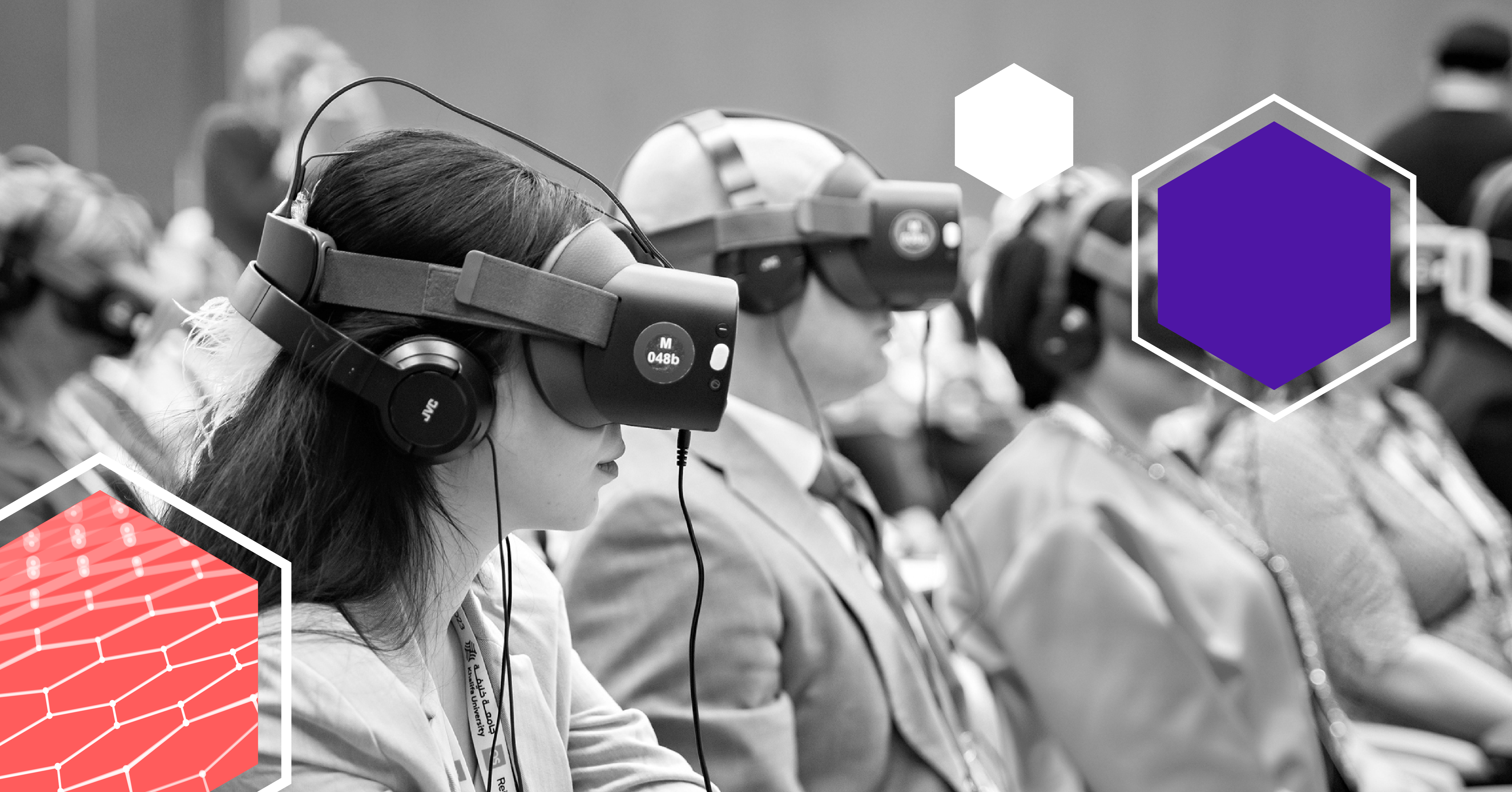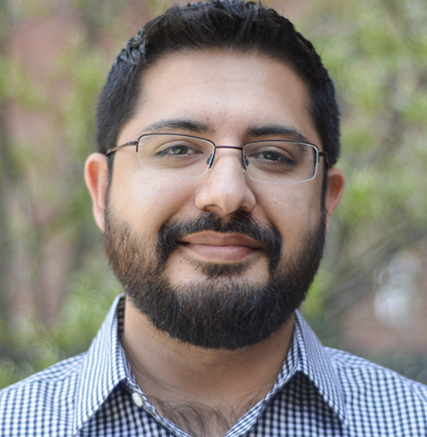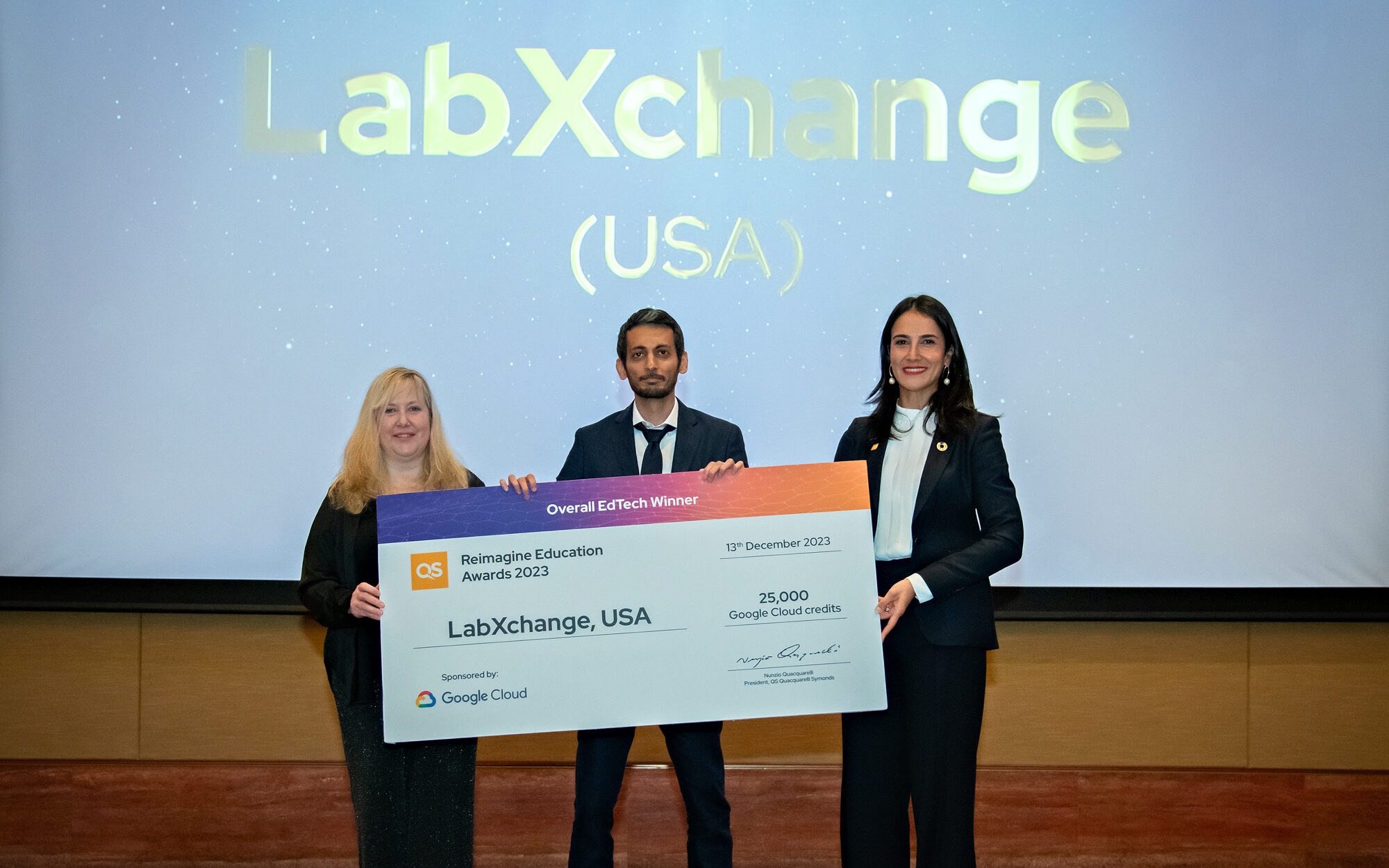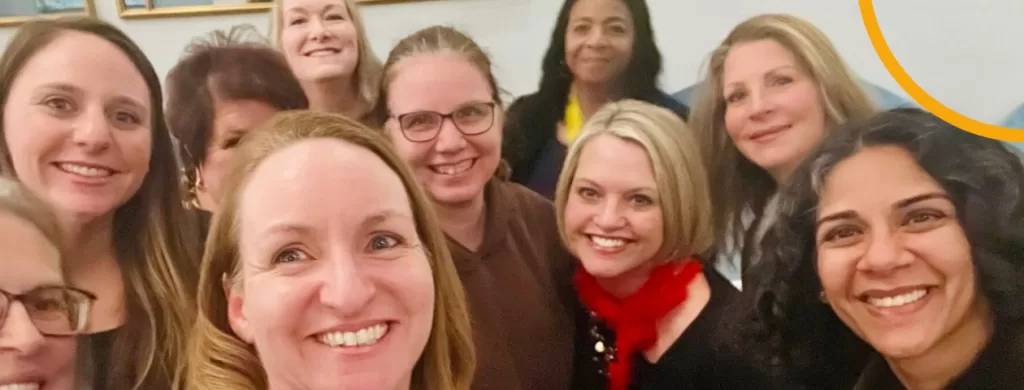
Having access to technology is essential for today’s learners. However, educators must know what expectations students have to make informed decisions.
While academics spend the majority of their time trying to meet the diverse needs of their students, institutions need to work on motivating faculty to use the technology that can make STEM teaching more accessible.
We spoke to Gaurav Vazirani, Managing Director at LabXchange, who were awarded the “Overall EdTech Winner” at the QS Reimagine Education Conference 2023, to better understand the digital platform and why it is important for educators to learn how to utilise innovative learning technologies to enhance science education.
Hosted by Khalifa University in Abu Dhabi, the QS Reimagine Education conference brings together university leaders, faculty, educators and private-sector innovators to generate discussion, revolutionary strategies, and meaningful networking opportunities.
Congratulations on your award for the “Overall EdTech Winner”! In your own words, can you tell us about LabXchange?
Thank you! Considering all the incredible organisations that were in the running this year, we are truly honored to receive this award. Fundamentally, LabXchange is a digital platform that aims to make STEM education more accessible to educators and learners around the world. As a group based at Harvard University, a non-profit organisation, our focus is on driving global impact by promoting authentic engagement with science and the critical thinking skills that come with studying science.
Currently, LabXchange’s content library brings together over 25,000 learning resources from more than 150 science education organisations based around the world, which educators and learners can access and use entirely for free.

“Educators play such a critical role in our lives, which is why our focus is on making it easier for educators to find the resources and time to do what only they can: truly connect with their students.”
Can you describe some of the ways in which LabXchange supports professionals to provide a better learning experience for their learners?
For many of us, our love for learning was catalysed by someone who saw in us our true potential early on. A fifth-grade math teacher who wouldn’t let us be lazy, an eighth-grade teacher who picked out a book that felt like it was written just for you. These moments are, in my view, some of the most formative experiences for learners.
Educators play such a critical role in our lives, which is why our focus is on making it easier for educators to find the resources and time to do what only they can: truly connect with their students.
At LabXchange, our primary approach to supporting learning professionals is to provide the tools and resources needed for educators to tailor learning experiences to the specific needs of each student. Effectively, LabXchange sits in between two types of solutions that are generally offered: 1) published curricular materials that are to be utilised as presented, and 2) tools that allow the creation and delivery of bespoke content. Our approach is to allow educators to use a vast library of content so that they don’t have to create everything anew, but also give them the tools to modify and create new content, if the pre-existing materials do not meet the goals of their learners.
By allowing users to both leverage pre-existing high-quality resources but also adapt and add new content as needed, we aim to provide educators with the right mix of agency and efficiency. Fundamentally, our tech solution is aimed at empowering these educators to be able to have the power and the time to spark the kind of enthusiasm and love of learning that only they can.
In what ways do you think your digital platform helps students advance their knowledge in science education?
LabXchange enables learners to experiment with interactive learning resources, providing them with an engaging and educational means to explore complex scientific concepts and the scientific method as a whole. In professional labs, the majority of experiments that we perform lead to failure. But if the hallmark of the scientific method is 95% failure—which leads to educated adjustments in our approach and retesting—then professional labs are a far cry from what we would experience in a classroom where labs are taught.
Due to cost and time constraints, labs taught in schools follow a set of steps that yield a specific outcome. Success and guided discovery are the norm—not failure, which leads to exploration. Our digital platform helps to bridge this gap by allowing students to have endless opportunities for exploration and failure, which helps them develop curiosity, deeper understanding, and an appreciation for when things do go well.
This digital approach, when paired with the tactile learning and understanding that labs in a physical setting provide, creates the best of both worlds: exploration and failure by working in the digital realm, and understanding how to work in a lab with in-person experiences. For those that have access to both opportunities, LabXchange can be a boon to help them dive deeper and for those without access to physical labs at all, our digital platform allows them to learn and practice skills that would otherwise be difficult to build.
“LabXchange is designed to complement — not replace — existing practices.“
What are the most common misconceptions that people have regarding Edtech? And how are LabXchange working to overcome those barriers?
The most common misconception about Edtech is that it’s meant to replace traditional teaching methods entirely. LabXchange is designed to complement—not replace—existing practices. For an Edtech product to be successful, it has to be a fundamentally collaborative experience designed alongside the people that the product is for, which is why we work directly with educators, learners and subject matter experts to continuously develop our platform.
Too many Edtech products don’t put enough stake in these relationships and end up designing something for educators or learners without truly understanding what is really needed, ultimately missing the mark.
Can you tell us about your experience attending the QS Reimagine Education Conference 2023?
It was enlightening to hear so many diverse perspectives from people and organisations across the Edtech space. Seeing the many directions that Edtech is headed in gives us hope for the future of science education and we look forward to watching the technologies and ideas continue to grow.

Since your award win, what areas are you most excited about pursuing in the near future for LabXchange?
As a non-profit, our goal is to make an impact to move the needle on science education. Winning this award means that we’re on the right track and it’s a testament to the work we’ve already put into LabXchange. However, we know that there’s still plenty more to do. At present, we’re focused on continuing to grow our content library, enhancing our tools to help educators and learners access quality educational resources everywhere, and building a global community. We also look forward to delving more into several new areas of focus, including STEM career exploration and data science education.



